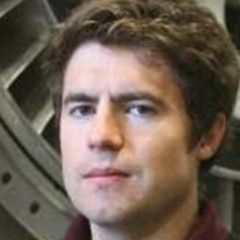Engineering
Engineering at Cambridge is a broad-based course aiming to provide a scientific foundation on which to base the principles of engineering analysis and design.

Course overview
The first two years of the course cover General Engineering, including Mechanics, Structures, Materials, Thermodynamics and Fluid Mechanics, Electrical Engineering, Information Engineering and Mathematics. In the third and fourth years, students can either specialise in one of nine Engineering areas or they can study Manufacturing Engineering. In both cases, this leads to the awarding of the Master of Engineering (MEng) degree.
For more information about the course and its modules, visit the University website.
What is it like to study Engineering at King’s?
Engineering is a very practical course, and a typical day might involve a two-hour lab followed by two one-hour lectures in the morning. These would take place in the Engineering Department. Afternoons are mainly reserved for private study and supervisions. There are major projects in all years, such as the first-year structural design project and the second-year integrated design project, in which teams of students design, build and test an autonomous guided vehicle to perform a set of tasks.
Engineering at King’s is a medium-sized subject, typically admitting 10 students per year.
Supervisions in Engineering are focused around the examples papers, which are typically issued fortnightly in all the subjects being lectured. Supervision groups of two are the norm. Students are expected to prepare by attempting the current examples paper, reading the relevant lecture notes thoroughly, and knowing what areas they need help with.
What do we look for in an applicant to Engineering?
Being a vocational subject, we look for applicants who can demonstrate a passion for Engineering through hobbies or relevant experience.
Academically, we are looking for applicants who can apply their knowledge of maths and physics to unusual problems. They will need to be fluent in mathematics and be able to apply physical ideas from first principles.
Requirements
A Level: A*A*A with A* in Mathematics and Physics
IB: 41-42 points overall with 7, 7, 6 at Higher Level
Subject requirements: Mathematics, Physics, and Further Mathematics (A Level. If Further Mathematics is not available, we require another physical STEM subject)
Admissions assessment: Engineering and Science Admissions Test (ESAT)
Written work: None
Admissions assessment
Candidates for Engineering must take the ESAT, which is a pre-registration required test. They will take Mathematics 1 and must take Physics and Mathematics 2. For more information about the test, please see the University website.
Careers and graduate opportunities
The Engineering course at Cambridge is very rigorous, and can lead to careers in many companies involved in product design and manufacture. It can also lead to work in engineering research and development. This applies across all engineering areas, from IT to structural design, aeronautical engineering, and microelectronics.
Students also learn generic skills in organisation, time management, problem solving, numeracy, and creative thinking, which can lead to careers in non-engineering areas such as financial services and management consultancy.
What is the best thing about studying Engineering at King’s?
The support of peers and the Engineering Fellows, who are passionate about their subjects and enjoy passing on knowledge to their students through the supervision system.
A top tip for applicants to Engineering at King’s
Do lots of maths and physics, especially tackling problems that require thinking ‘outside of the box’. Websites such as https://i-want-to-study-engineering.org/ are examples of excellent resources for aspiring King’s Engineers to hone their skills on.
The Directors of Studies for 2025-2026 are Prof. Chez Hall (Part IA), Dr Nick Atkins (Part IB), Dr Tim Flack (Part IIA), and Dr James Taylor (Part IIB).




